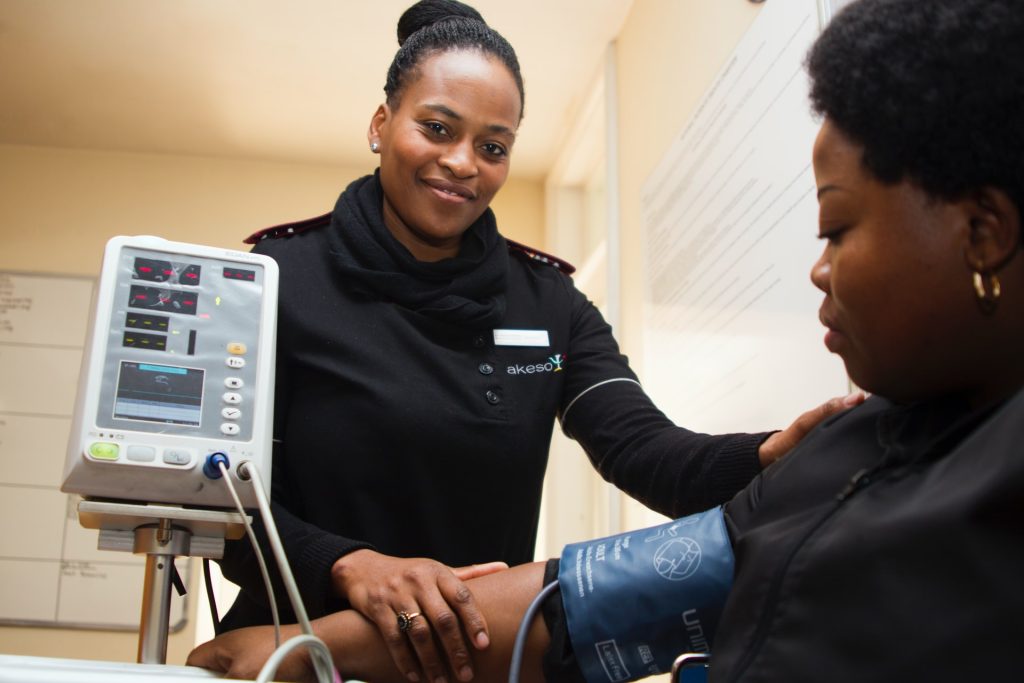
As part of a series of podcasts titled “Advancing Healthcare” that examine the critical issues that must be addressed to achieve universal healthcare, Russell Rensburg of the Rural Health Advocacy Project calls for a focus and prioritisation of rural health.
Across rural South Africa, the health profile of South Africans is changing. Thanks to the rollout of antiretroviral drugs, South Africa’s life expectancy has increased, and with that, the population is getting older. While this is good news, an ageing population does bring new challenges to the healthcare system.
Rensburg noted that as part of the success of the HIV response in the last 10 years, there has been an increase in life expectancy. But the challenge is that as disease profiles change, health care needs change too. “We need to respond to the differing health needs of young people and older populations,” he adds.
According to Rensburg, available data shows we must start taking differentiated approaches to delivering healthcare for different population segments. However, more data is required because no one knows the prevalence of certain diseases, like cancer. Also, lacking management data means little information on how facilities are run. Without the right data, he says, “We haven’t figured out a way of doing health promotion and health literacy.”
The Rural Health Advocacy Project is a division of Wits University’s health consortium, and it aims to promote better health care for rural communities. However, providing meaningful rural health care requires understanding that each province within South Africa has its own challenges.
In Kwazulu-Natal, for instance, a recent study involving basic screening found high levels of diseases like diabetes and tuberculosis in people who had never accessed the healthcare system.
The Eastern Cape, says Rensburg, has too many hospitals that are expensive to run. “Some of those hospitals they don’t need,” he said. “There are, like, 91 district hospitals in the Eastern Cape; many of them are like old mission hospitals that, in my view, are sometimes too expensive to run.”
Limpopo, says Rensburg, has a malnutrition problem. “They have severe acute malnutrition rates that are quite high, which is ironic because it’s kind of a breadbasket province,” he said.
Another overreaching problem that healthcare professionals have to deal with in the rural districts of South Africa is that patients often bypass the community clinics and go to the hospitals when they need medical attention.
These clinics are bypassed because of negative experiences where patients endure day-long queues and medicines that aren’t in stock. “They go to the hospital, which costs probably five or six times more for the state to deliver that care,” explained Rensburg.
Rensburg believes more community health workers should be hired, and their training should be standardised to improve rural health care. “We need to professionalise them because it’s an opportunity to create employment in parts of the country with low economic activity,” he said.
According to Rensburg, other interventions that could improve rural health care could include cutting queuing times, improving antenatal care, and making maternity care easier to access. Pregnant mothers can wait up to 14 hours to access a bed.
Access to better management data would help in the better running of facilities. “I think the first baseline into improving healthcare is getting more people to understand their health status. And I think how we do that is being much more focused on gathering information. And then using that information for decision-making,” Rensburg said.
However, improving the well-being of South Africans living in the rural parts of the country goes beyond what the health sector can offer. “So maybe something like a Basic Income Grant could have a massive impact on people’s health, particularly in the rural areas where unemployment is 90%.” The basic income grant could help reduce malnutrition, Rensburg adds.
What could influence rural health soon is NHI. “I think the NHI is an opportunity to change how we deliver healthcare,” said Rensburg. “But when you look at the NHI proposals, it was about restructuring public-funded health care services. The whole thing talks about how we better manage hospitals by giving them their budgets.” Rensburg adds that restructuring publicly funded services, prioritising district health services, and improving the efficiency and efficacy of central, tertiary and regional hospitals by giving them greater autonomy should also be considered key to improving rural health.
This podcast, which is part of a series that aims at creating critical discussion around achieving universal health care, can be accessed at https://hasa.co.za/hasa-podcasts/

